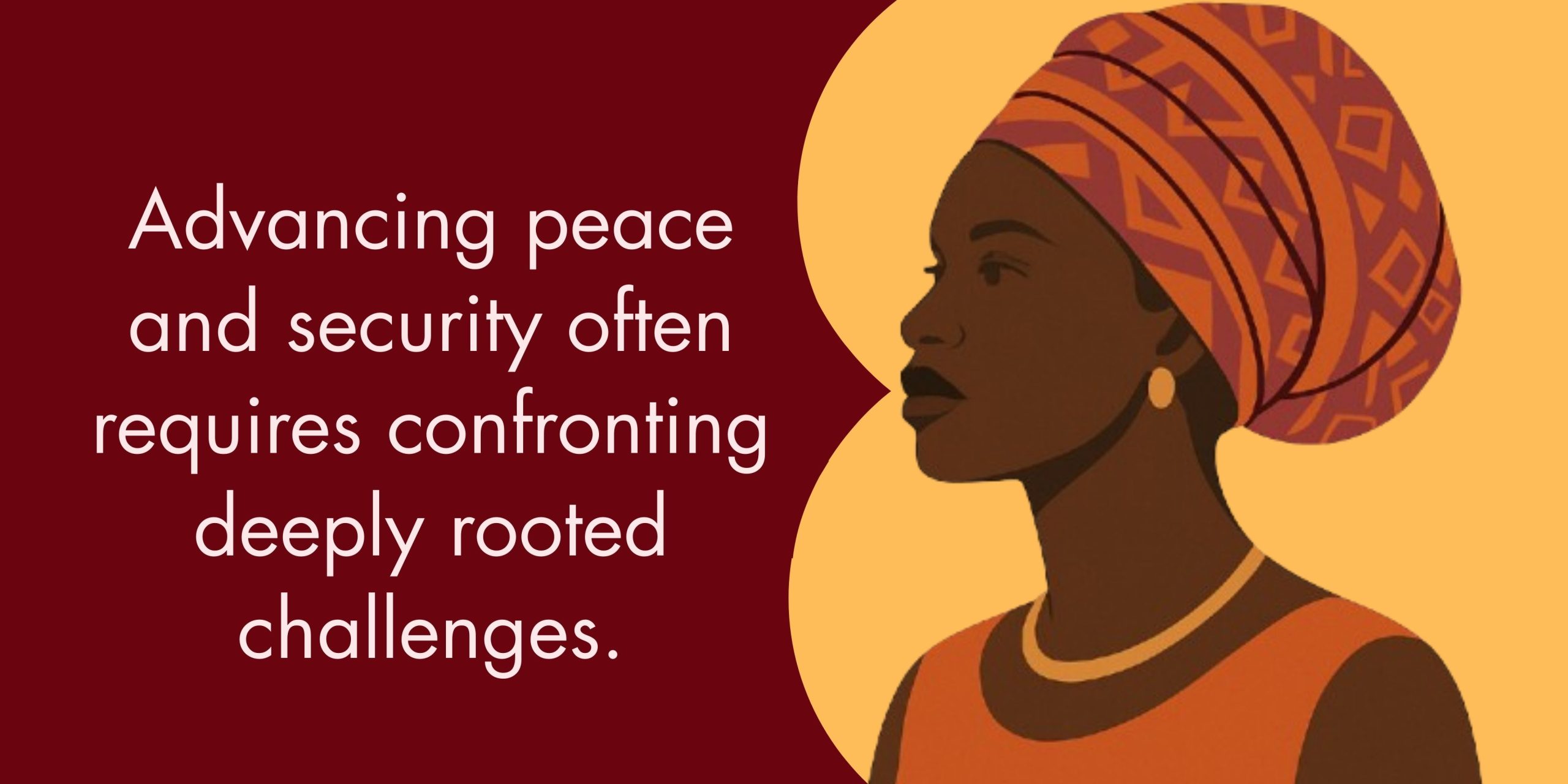Across the world, women are increasingly recognized as vital agents in fostering peace and enhancing security within their communities. Their leadership is not confined to formal institutions or high-profile negotiations; it is rooted in daily life, where trust is built, conflicts are mediated, and safety is safeguarded. In the local community, women’s contributions are indispensable to creating resilient, stable, and inclusive societies.
While global peace and security strategies often focus on policy frameworks and international agreements, the most enduring change often begins at the grassroots level. Women are uniquely positioned to lead in these settings. They are frequently the first to identify rising tensions, the first to intervene in disputes, and even the first to mobilize community resources during crises.
In marketplaces, they ease rivalries. In schools, they instil values of tolerance. In homes, they teach the next generation that dignity is not negotiable. Through their roles, they address the root causes of insecurity. They build relationships across divides, promote dialogue, and create an environment in which conflict is less likely to take root. Their influence flows not from political power, but from trust earned through compassion, persistence, and a fierce commitment to the common good.
Historically, women’s contributions to security and peacebuilding have been undervalued or even overlooked. But history and countless real-life examples prove otherwise. However, their effectiveness in resolving disputes and preventing violence is well documented. In many communities, women have successfully mediated conflicts, organized neighbourhood safety programs, and established platforms for cross-community dialogue.
They succeed because they listen. They succeed because they understand the cultural nuances, the unspoken fears, and the unvoiced hopes of their people. And they succeed because they believe peace is not just the absence of war, but the presence of justice, opportunity, and safety for all.
Resilience in the Face of Adversity
Advancing peace and security often requires confronting deeply rooted challenges. It means challenging injustice head-on. It means having the courage to speak out against violence, corruption, and inequality. Many women who step into these roles face personal risks, threats, intimidation, and sometimes even violence. Yet they continue with determination.
They continue because they know that if they do not speak, silence will become an accomplice to suffering. They continue because they see the faces of children who deserve a future without fear. They continue because they believe change is not only possible, it is inevitable when powered by determination.
Their resilience is driven by a clear vision: a community where every individual can live without fear and where the rights of all are protected. This commitment fuels their ability to persevere, even under difficult circumstances.
The work women do in the communities has a ripple effect. Local initiatives, such as youth mentorship programs, mediation efforts, and public safety campaigns can significantly reduce violence and crime. When these successes are replicated, they contribute not only to local stability but also to national and global peacebuilding efforts. Recognizing and investing in women’s leadership in this area is not merely a matter of social equity; it is a strategic necessity for sustainable peace and development.
A Call to Action
The advancement of community peace and security is not a women’s issue, it is a human issue. But women have proven they are indispensable in this mission. To maximize the impact of women’s contributions, stakeholders including local governments, civil society organizations, and international partners must provide women with capacity building, forums, opportunities and resources to do more. They must ensure women’s inclusion in decision-making processes, allocate resources for their initiatives, and create policies that remove barriers to participation.
Support means more than funding, it means inclusion in decision-making. It means rewriting policies to ensure women’s voices are heard not after the crisis, but before it begins. It means dismantling the social and structural barriers that limit women’s ability to act. Supporting women in this work is both a moral obligation and a practical strategy for achieving long-term stability.
Where women are empowered to lead, communities become stronger, more cohesive, and more secure. The advancement of peace and security at the local level depends on their engagement, leadership, and vision.
The path forward is clear: promote environments where women’s voices are heard, their leadership is valued, and their efforts are fully supported. In doing so, we move closer to building communities where peace and security are not aspirational goals or privilege for the few, but everyday realities and right for all.
The message is clear: peace is not passive, it is built. Security is not given, it is earned. And in the hands of determined women, both are possible.
Let us stand with the women. Let us learn from the women.
Together, let us advance toward building communities where peace and security are not dreams, but daily realities.

